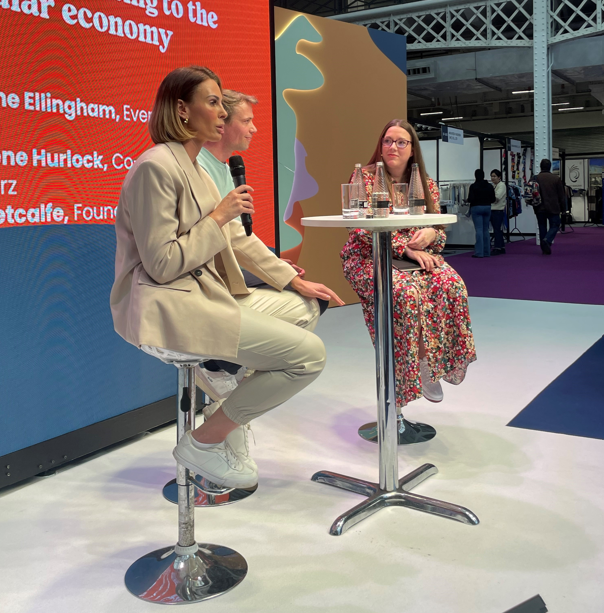
The co-founder of kids preloved fashion marketplace Swoperz Charlene Hurlock told an audience at Source Fashion that targeting the younger generation to promote sustainable fashion practices has the potential to create lasting behavioural change.

During the panel discussion titled ‘Closing the Loop – how fashion marketplaces are contributing to the circular economy,’ she explained that by encouraging children to swap and exchange clothes she hopes to instil conscious consumption habits from an early age.
Hurlock shared that the idea behind her company came to life after a conversation with her daughter made her realise children of her age group were unaware of fast fashion’s impact on the environment. She claimed that while children are learning about sustainability and becoming more eco-friendly, they lack awareness regarding fast fashion.
Hurlock shared that she’d asked her daughter if she would wear the same dress again to another event, to which she responded negatively. This motivated her to raise awareness among children of her daughter’s age group and create a platform that offered an “economical option” for them to try more clothes while reducing any environmental impact.
She said: “Focusing on younger generations provides an opportunity to integrate preloved shopping and sustainable fashion as not just choices but integral cultural norms.”
Hurlock holds the belief that this approach helps embed preloved shopping and sustainable fashion into mainstream culture by leveraging the tech-savvy nature of the younger generation.
Importance of making secondhand fashion convenient
Joe Metcalfe, founder of secondhand fashion marketplace Thrift+ argued that “removing friction” for fashion sellers is also very important. He explained that shoppers often view their old clothes as waste so his company is often competing with a dustbin bag, which means convenience is critical for success.
He believes that’s where his brand comes into the picture as the platform unlocks supply to get affordable preloved fashion online at scale.
He said: “For shoppers, with the rise of Amazon, they typically have very high expectations – so when we can provide an exceptional shopping experience, with rapid delivery, quality control, and 30 day returns – we often find a delighted customer!”
Metcalfe pointed out his company evolved from an app that he built for high street charity shops to sell their “best stock” to local online shoppers.
“At Thrift+ we believe that many of the barriers to selling and shopping secondhand are a result of the peer-to-peer platforms. That’s why we exist – to sit in the middle and to unlock both supply and demand from those who otherwise wouldn’t participate. That’s how we make a real impact on fashion waste,” he added.
Metcalfe noted that hurdles still remain such as how to engage customers when partnering with a brand.
Hurlock shared some of Swoperz’s successful collaborations with brands, retailers and organisations so far that are already helping to advance its secondhand clothing agenda for kids.
She explained Swoperz has collaborations with UK supermarket Asda to conduct free workshops in its cafes on reuse, recycling and repair. The company has also partnered with the kids debit card and money app GoHenry to leverage its insights on spending habits on 11-17 year olds. Plus, it has partnerships with local authorities to other education workshops and recently joined forces with London eco waste and resource management initiative ReLondon in a bid to help make the city a global leader in sustainable living.



